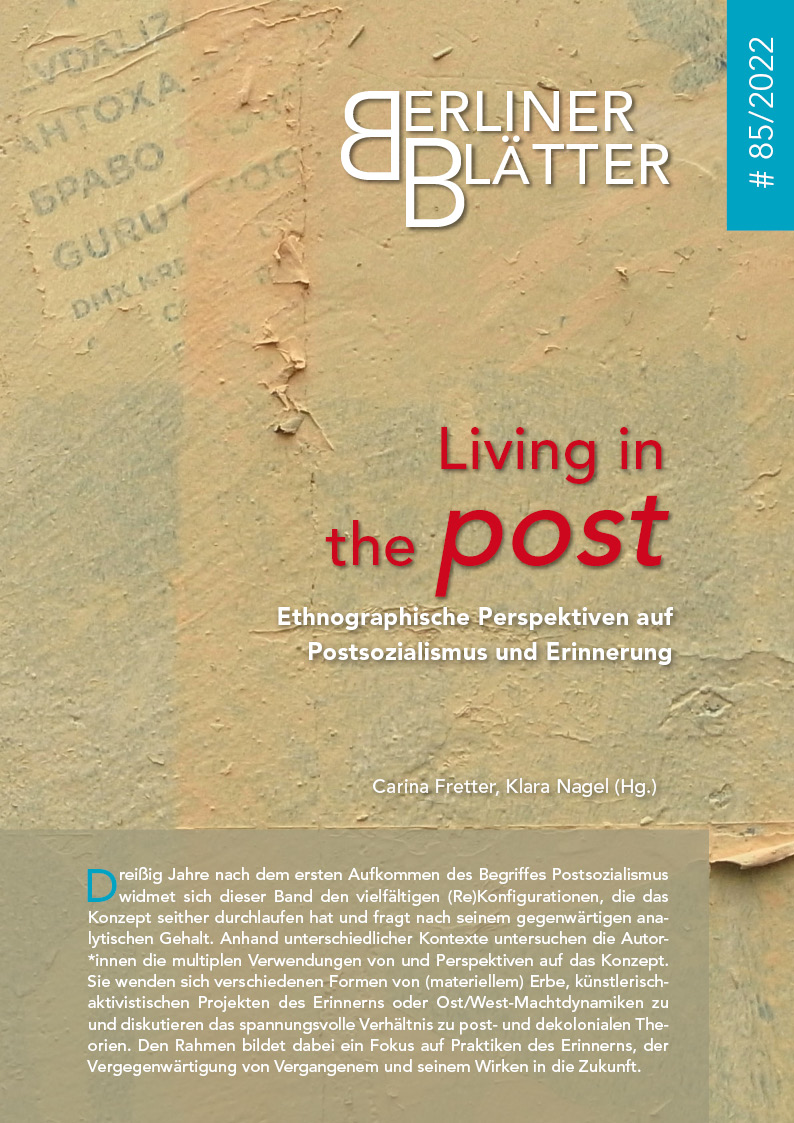Feminism, Nationalism, Decolonization
Perspectives from Bishkek and Almaty
DOI:
https://doi.org/10.18452/24001Keywords:
Central Asia, decolonization, postcolonialism, feminism, nationalismAbstract
Since the 1990s, artists, academics and activists both in the countries of the former USSR and in the West have demonstrated that it is possible to look at the ex-Soviet space from a post- or decolonial perspective. However, there is as of yet no developed vocabulary that would address the questions of racism and colonialism from the perspective of the former USSR. Even though anti-racist movements are only now being formed in the region, discussions about racism have long been happening among (queer) feminists. In this article, I analyze how the Russian/Soviet history is perceived by queer feminist activists, artists and scholars from Bishkek and Almaty. Based on the interviews collected during a monthly research stay in these two cities in Central Asia, the study opens a discussion about the ways in which the understandings of Russian/Soviet history and current power relations shape local feminist discourses and networks, thus contributing to the discussions on coloniality and inequality within transnational feminist movements.
Downloads
Published
How to Cite
Issue
Section
License
Copyright (c) 2022 Berliner Blätter

This work is licensed under a Creative Commons Attribution-NonCommercial-ShareAlike 4.0 International License.








